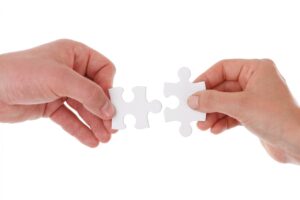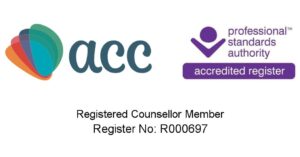Integrative Counselling
There are many different types of counselling. I am an integrative counsellor, which means I draw theory and tools from various counselling modalities, so I can offer a personalised approach to each client or couple I work with. Depending on your situation, your reasons for seeking counselling, and your goals for therapy, I may use elements of Humanistic Therapy, Psychodynamic Therapy, Cognitive Behavioural Therapy, Inner Child Therapy, Internal Family Systems, Transactional Analysis or other theories and tools. It doesn’t matter whether you are familiar with these different modalities, but you may find this webpage on types of therapy helpful if you want more information on different counselling modalities.
As well as these different modalities, I am happy to include elements of faith, religion and spirituality into my counselling and have specific training on this. My counselling is generally talk based, but at times I may use creative activities, therapy cards, worksheets and other tools to aid in the counselling work. I encourage you to have an open mind to things that are new to you. You are welcome to ask any questions you may have, and it is always your choice whether or how to engage with the different ideas or activities I offer.
Counselling Relationship
The relationship between the counsellor/therapist and their client(s) is the most important foundation for healing and change in counselling. Without a safe, non-judgmental, trusting therapeutic relationship, the potential for change is minimal. Part of the work of counselling is developing this relationship where you can then feel supported as you explore the difficulties you are having and find ways to heal and develop.
In counselling, I aim to provide a safe and confidential space in which you can share about your personal and relationship difficulties, discover new insight and grow, in order to live a fuller life. I do not discriminate on the basis of age, gender, sexual orientation, ethnic origin or religion. To the best of my ability, I will provide an environment that is supportive and non-judgmental. You will be given space to consider your present, past and future as relevant to the difficulties and hopes you bring to counselling.
Whole Person Approach
I believe the different elements of who we are all work together and influence each other. If one is not functioning well, the whole system will struggle to function. I aim to work with the whole person, looking at difficulties in different elements of who we are to understand the problems and find options for healing and positive change.
You may be experiencing difficulties in some of these areas: 
- physical symptoms
- emotions
- behaviour or choices
- relationships
- thoughts and values
- the spirit/soul
Where Problems Come From
I believe humans all have deep needs for unconditional love, acceptance and a sense of purpose in their lives. Where we are lacking in these things, we form ideas (beliefs) as to where we can find fulfilment. These beliefs lead us to choose self-protective behaviour, to withdraw from relationships or to become too dependant on others. When these behaviours don’t bring us the fulfilment we need, we may feel anxious, angry, guilty or depressed and our bodies can suffer.
Finding Healing
Physical, emotional and behavioural symptoms can indicate our beliefs regarding fulfilment. Looking at childhood relationships and experiences can also provide clues. By identifying and examining our beliefs, we can evaluate them and, where necessary, replace them with more healthy beliefs. We can find sources of true fulfilment which will allow us more freedom to enjoy life.
Because the seeds for many of our thoughts and behaviours were planted in early life, it can take time and patience to uncover them, root them out, plant new ones and watch them grow. I am prepared to work with my clients for as few or many sessions as they need, and the door is always open for you to come back for more sessions later too. In counselling, I aim to equip you with understanding, strategies and self-compassion, so you can continue to find healing and positive change beyond counselling and throughout the rest of your life.




